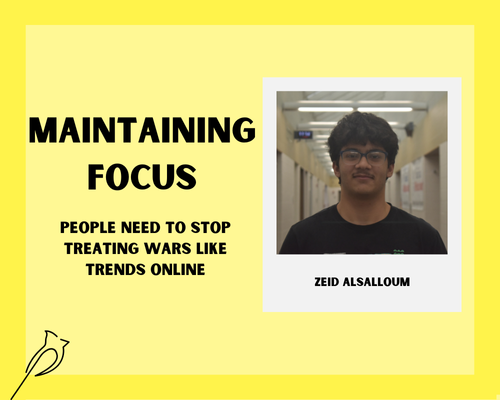Sophiology
Gossip has a negative hold on women in society
From whispering secrets in friends’ ears to chatting up a storm over a cup of coffee, the spread of information is everywhere. It can be innocent, yet so detrimental at the same time. This type of talk can be referred to as “gossip.”
Gossip itself has a negative connotation. But if we look back at the history of it, we can see that gossip is aimed solely to criminalize women.
When I think of the term “gossip,” common words come to mind: petty, mean, invasive, rude and judgemental. I would assume the same for a good majority of people, too.
I’ve always been told that gossiping was a bad trait and that I shouldn’t take part in it. But, I never evaluated the true meaning of it. I’d often guilt myself for talking about people even if it wasn’t necessarily mean. I felt restricted and trapped. I couldn’t form an opinion without feeling like I was going to get horrible karma for it. Then, I finally looked up the original definition.
According to Word Origins, the term “gossip” dates back to the 12th century. It was originally associated with the Christian rite of baptism, meaning “godparent” or “sponsor at a baptism.”
Its meaning has changed throughout history. From the 17th century to the 19th century, gossip was referred to as a close friend that you could confide in. People would host get-togethers with their friends and talk about different aspects of life such as politics and romantic relationships.
It was soon seen as something only women participated in, which has been the main contributor to the ongoing misogyny that gossip holds.
It’s also been a way to silence women. Women who were caught gossiping were portrayed as outspoken and rebellious, traits that weren’t favorable in women back then or even today.
It’s taken a whole different turn from its original meaning, and women in particular have had to pay the consequences.
According to activist Winfred J. Akobi, women were severely punished if they tried to speak their mind. They had to wear a “scold’s brittle,” which was an iron mask that served as a muzzle. Some punishments were even more extreme such as drowning and burning at the stake.
A word went a long way for women centuries ago, and it still seems to carry the same weight today. Everyone gossips, no matter the gender. Humans are made to communicate and evaluate the world around them.
Of course there are limits, but the way women are immediately associated with gossip is misogynistic. With a world built to silence women, gossip can act as a light to us.
It challenges our views, helps us bond with others and further develop insight.
So the next time a woman is bashed for gossiping, think whether the internalized misogyny is speaking louder than her.

Hello! Wow, I can’t believe this is my third time writing my staff bio. From an awkward freshman with a cat backpack to a vibrant senior, time has flown...







